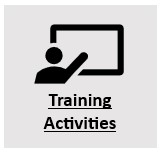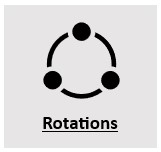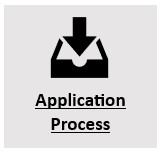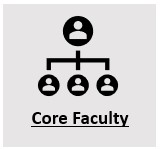
General Overview
Within Washington’s Department of Social and Health Services, the Office of Forensic Mental Health Services (OFMHS) sponsors a year-long fellowship training program in forensic psychology, which offers expertise in the area of forensic evaluation and assessment.
At OFMHS, forensic evaluators, and fellows under the direct supervision of a licensed psychologist, provide evaluation services to inform local courts regarding pretrial (for example, a defendant’s competency to proceed to trial, mental state at the time of the offense) and post-adjudication (for example, violence risk assessments for individuals adjudicated as not guilty by reason of insanity) matters.
Our fellowship is approved as a qualifying program by the American Board of Forensic Psychology to offer a waiver of the five-year experience requirement for forensic board certification applicants (approval period 2023-2028).
The mission of the OFMHS fellowship program is to prepare professional psychologists as forensic mental health practitioners capable of excellence in independent practice by fostering a diverse, ethical, and culturally competent training experience, and developing their core competency proficiencies in forensic psychology. We are committed to the values of best practices, inclusivity, and multiculturalism, striving to prepare fellows for board certification in forensic psychology and excel as forensic examiners and leaders in the field of forensic psychology.
Over the years, our program has expanded from one fellowship position on the West side of the state to a cohort of up to six fellows across Eastern and Western Washington. Correspondingly, we have been able to expand the learning opportunities offered to fellows, as well as the resources and support we can offer to fellows entering the training year with a diverse range of professional experiences. We seek fellows who are aligned with our program values, demonstrate a commitment to developing their professional identities as independent practitioners in forensic psychology, and are resourceful and motivated to hold their work accountable to best practices in the field.
The fellowship program offers multiple training opportunities through close supervision in all aspects of the completion of a variety of forensic cases, the study and application of relevant and current forensic literature, biweekly case law studies, regular didactic seminars, and case conferences.
The fellowship offers didactic training designed for our fellowship and internship students, but that is also open to the general learning community. A calendar of topics is below with videoconferencing links:





